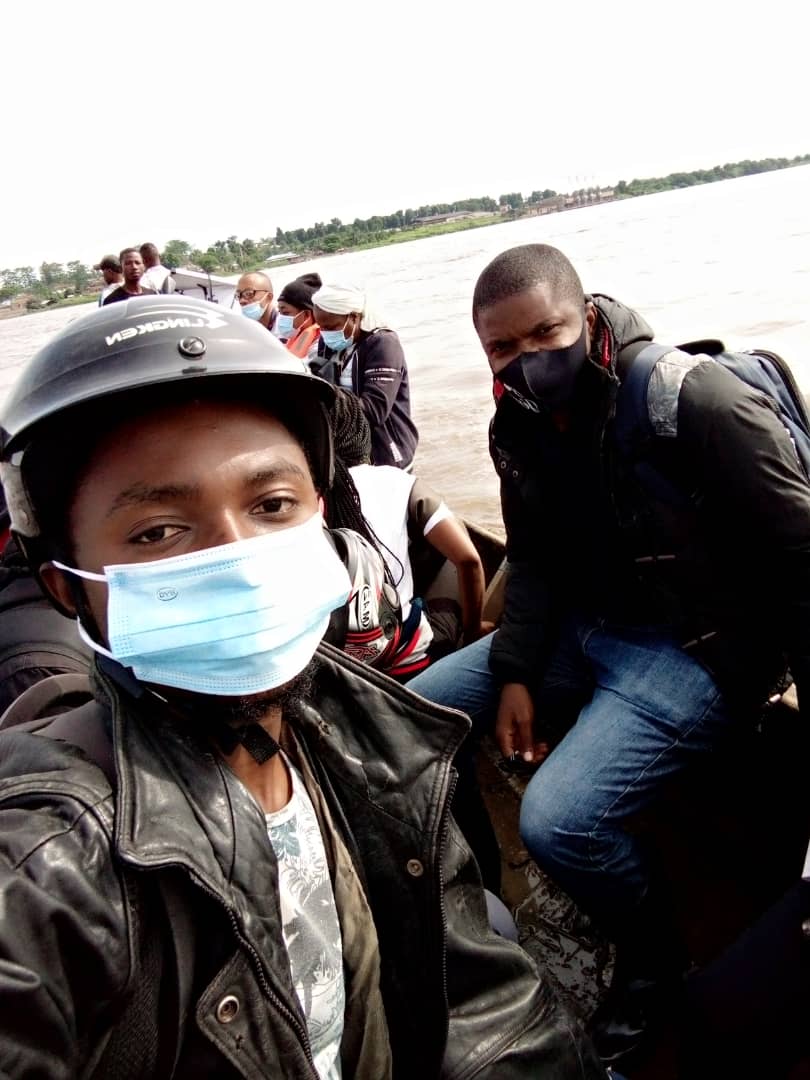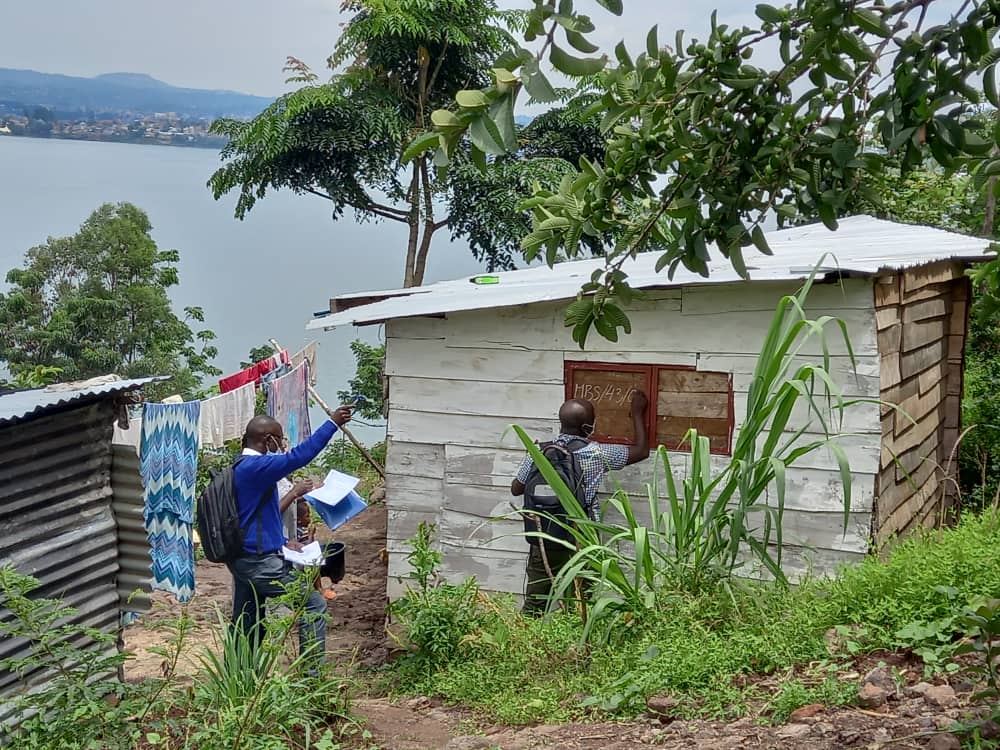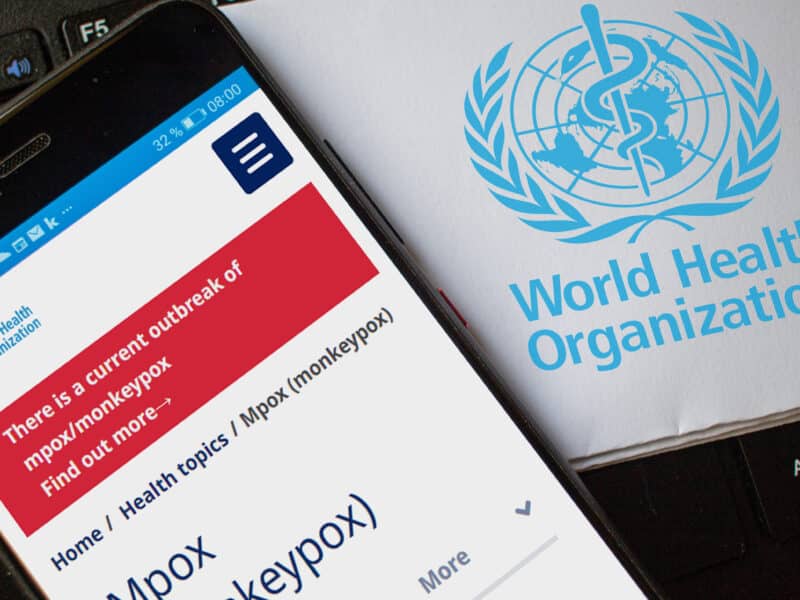A year into the COVID-19 pandemic, the Johns Hopkins Center for Communication Programs couldn’t wait any longer. CCP needed to head out into the urban centers and rural reaches of the Democratic Republic of Congo to conduct its massive Malaria Behavior Survey.
But the realities of the pandemic have made an enormous undertaking even more challenging. With restrictions necessitated by the COVID-19 pandemic, CCP had to add many additional steps in order to both get accurate data from households in 15 DRC provinces and to ensure that both data collectors and those they surveyed could be kept safe.
And there was added anxiety: How would masked data collectors be treated in a country where mask use is limited? Would these strangers be welcomed or feared?
“The communities will not accept this,” data collector trainees warned CCP’s Research Director Stella Babalola, who traveled to DRC in March to train them. “They will call us names.”
Fortunately, their fears were unfounded. “When we got to the field, we learned that was exaggerated,” she says. “People were open to having us in their homes, even with masks on and distancing measures in place.”
The comprehensive Malaria Behavior Survey asks questions about the factors that — according to behavior change theories — influence malaria-related behaviors, such as seeking care for children with fever (a sign of malaria), sleeping under a mosquito net and taking malaria-prevention medication during pregnancy. CCP has fielded these surveys, supported by the U.S. President’s Malaria Initiative, in Côte d’Ivoire, Cameroon and Sierra Leone and plans to conduct others in Liberia, Malawi, Tanzania, Benin and Ghana in 2021.

Data collectors with the Malaria Behavior Survey set out by boat to reach remote households.
In DRC, the CCP-led Breakthrough ACTION project expects to survey 5,000 households by the end of April.
The rollout of COVID-19 vaccines in DRC is on hold. Meanwhile, more than 29,300 cases of COVID-19 have been reported in the country since the beginning of the pandemic, according to Johns Hopkins University, and at least 752 people have died. While there is a 9 p.m. curfew in the capital Kinshasa, masks are a rarity.
“Our data collectors are often the only people in the community wearing masks,” Babalola says.
For Babalola, CCP Senior Researcher Albert Casella, and others, the first step on their March visit was to train both trainers in Kinshasa and about 150 data collectors. Large gatherings were out, so the trainings were conducted in small sessions in eight of DRC’s provinces. Trainers and trainees alike were required to wear masks and keep a safe distance from one another, while fever checks and questions about possible symptoms and exposures were added to the daily routine.
Traveling to each province was a challenge only made more complicated by COVID-19. Poor roads mean that motorbike is typically one of the only ways to travel from province to province. Sometimes data collectors have to travel by boat to reach households. To move between provinces by plane, research team members flew first to Kinshasa, as no flights connect the provinces, and then on to their destinations. Often, flights were cancelled. Many COVID tests were taken.
The same COVID protocols required for training were taken into the field, as data collectors went door-to-door to gather responses. Before any questions about malaria could be asked, data collectors asked each survey participant to wear a mask throughout the interaction and queried them about whether they had any COVID symptoms or possible exposures – measures that added time to an already long survey. If the participants lacked a mask, the data collection team would provide one.
“We have to enforce these COVID-prevention measures,” Babalola says. “In the field, the data collectors are obligated to wear masks, practice physical distancing and not to interact with anyone who is not wearing a mask.”
The research team checked on data collectors in the field unannounced to see if they were following protocols and found no issues. They also found that very few households refused to participate in the survey.
The team had no choice but to begin the survey this spring, they say, despite the persistence of COVID-19. To most accurately understand issues such as net use and the factors behind it, it is critical to conduct interviews toward the end of the rainy season.
Twelve percent of the world’s malaria infections occur in DRC. In 2019, an estimated 44,000 people died from malaria in there.
“In DRC, malaria is killing many more people than COVID so there’s a real urgency to conduct this survey – and use the results to reduce the risk of malaria in the future,” Casella says.





